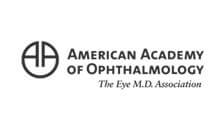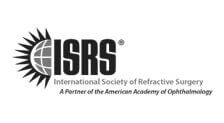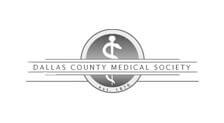Sometimes, it seems the “awareness month” wagon has rolled a little off the rails. For example, apparently, February is Adopt a Rescued Rabbit Month and, no lie, Return Shopping Carts to the Supermarket Month. Listen, we like fuzzy bunnies as much as the next person, and we do believe shopping carts belong in supermarkets and not in your driveway. That said, we’re not positive an entire awareness campaign, for either cause, is really necessary.
But there is one issue that gets the spotlight in February and we are here for it! February is Age-Related Macular Degeneration Awareness Month. At Carter Eye Center, we care about your eyes. We want you to have the best possible vision you can have and enjoy healthy eyes for a lifetime.
Age-Related Macular Degeneration
Age-related macular degeneration (AMD) is a genetic disease associated with aging, where the central portion of the retina (called the macula) deteriorates. AMD is also one of the leading causes of blindness in the United States. It affects your central vision and has a negative impact on everyday activities, such as driving, reading and recognizing faces.
Millions of people are diagnosed with AMD each year; a visit with a board-certified ophthalmologist like Dr. Carter is the right place to start if you are concerned about this condition. He can help you find a retina specialist to guide you through managing this sight-stealing condition.
Types of Macular Degeneration
There are two types of AMD: dry (by far, the most common type) and wet. Treatment for dry AMD begins with routine eye exams with your eye doctor, especially after age 60, with the goal of early detection. If detected, Dr. Carter may prescribe a mix of zinc and antioxidants to help in slowing the progression of the disease. And he will refer you to a trusted retina specialist for ongoing care and treatment.
Treatment for the much less common wet AMD can include a number of options, including intravitreal injections that inhibit the growth of the abnormal blood cells that cause wet AMD.
Macular degeneration is irreversible, so patients who are at risk for age-related eye disorders need to be diligent about their eye care. If you are at risk for AMD, please contact us today. By identifying the early signs of macular degeneration, we can help prevent and treat this disease.
The Carter Cares Advantage
At Carter Eye Center, our shared goal is to be the best, most trusted eye care provider in Dallas. With an internationally renowned and experienced ophthalmologist, skilled optometrists and a highly trained clinical team, we provide the latest state-of-the-art diagnostic tests, treatments and procedures, customized to your needs, lifestyle and vision goals.
Schedule an appointment with your Carter Eye Center team to learn more about how to protect and preserve your vision today and in the future.









